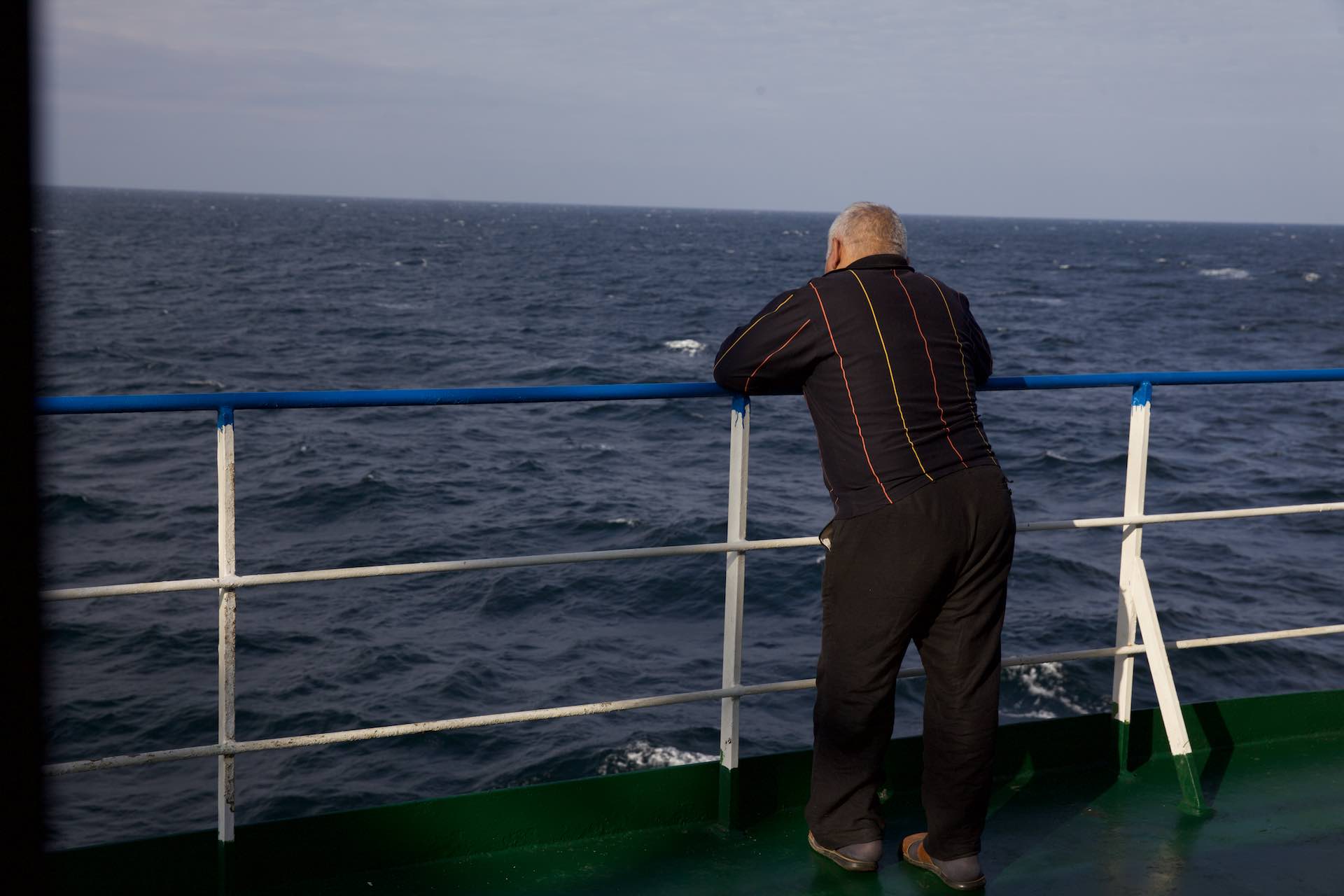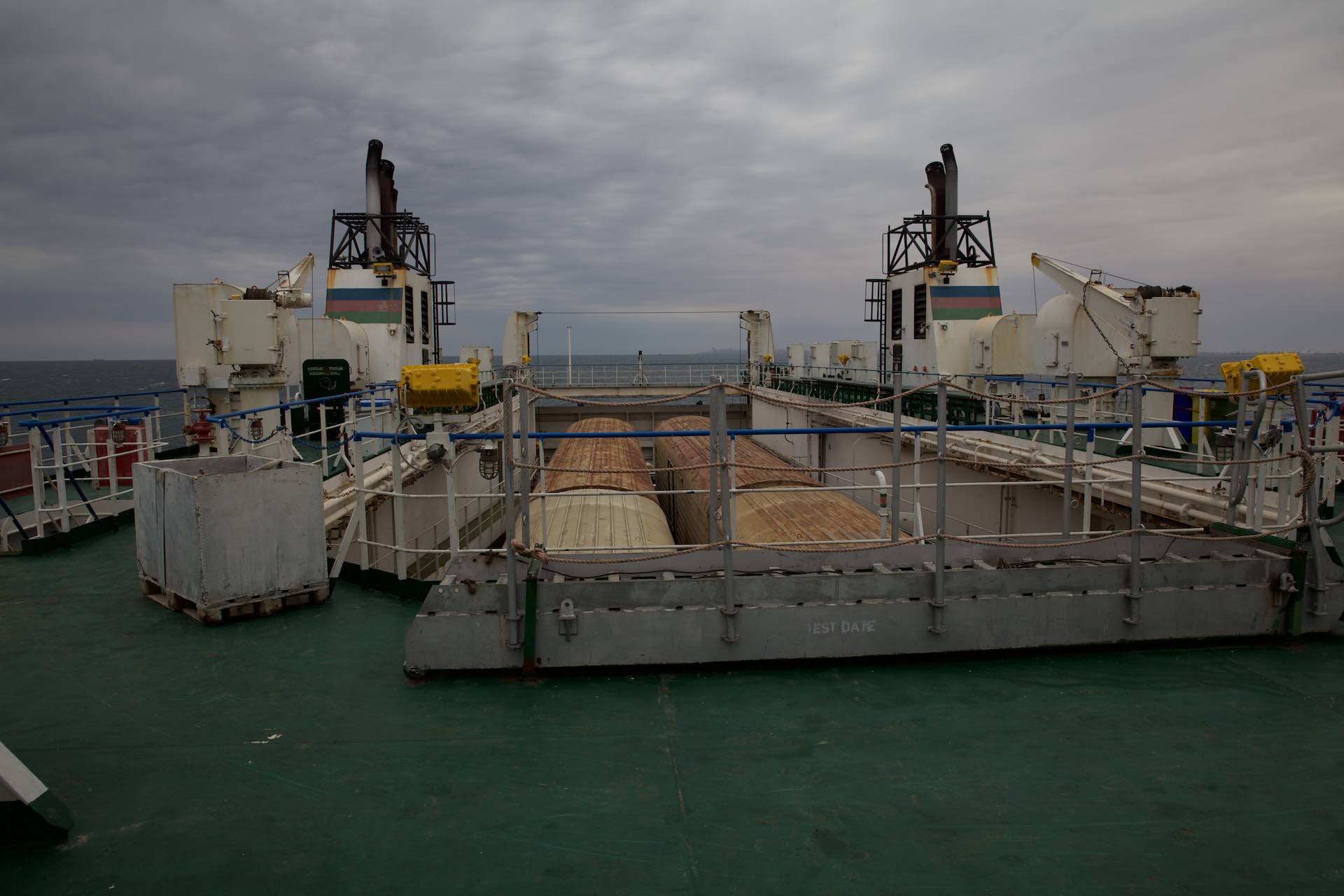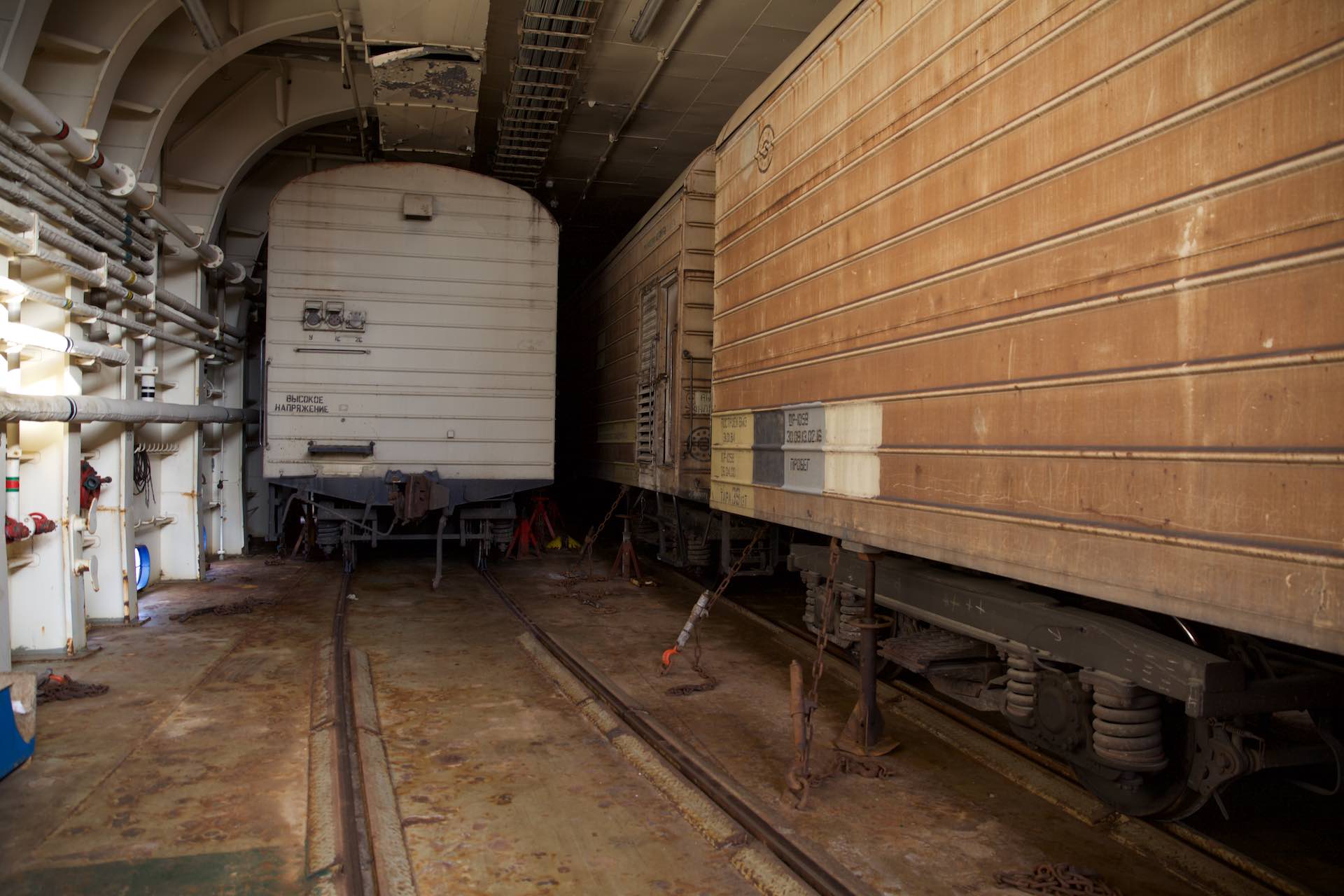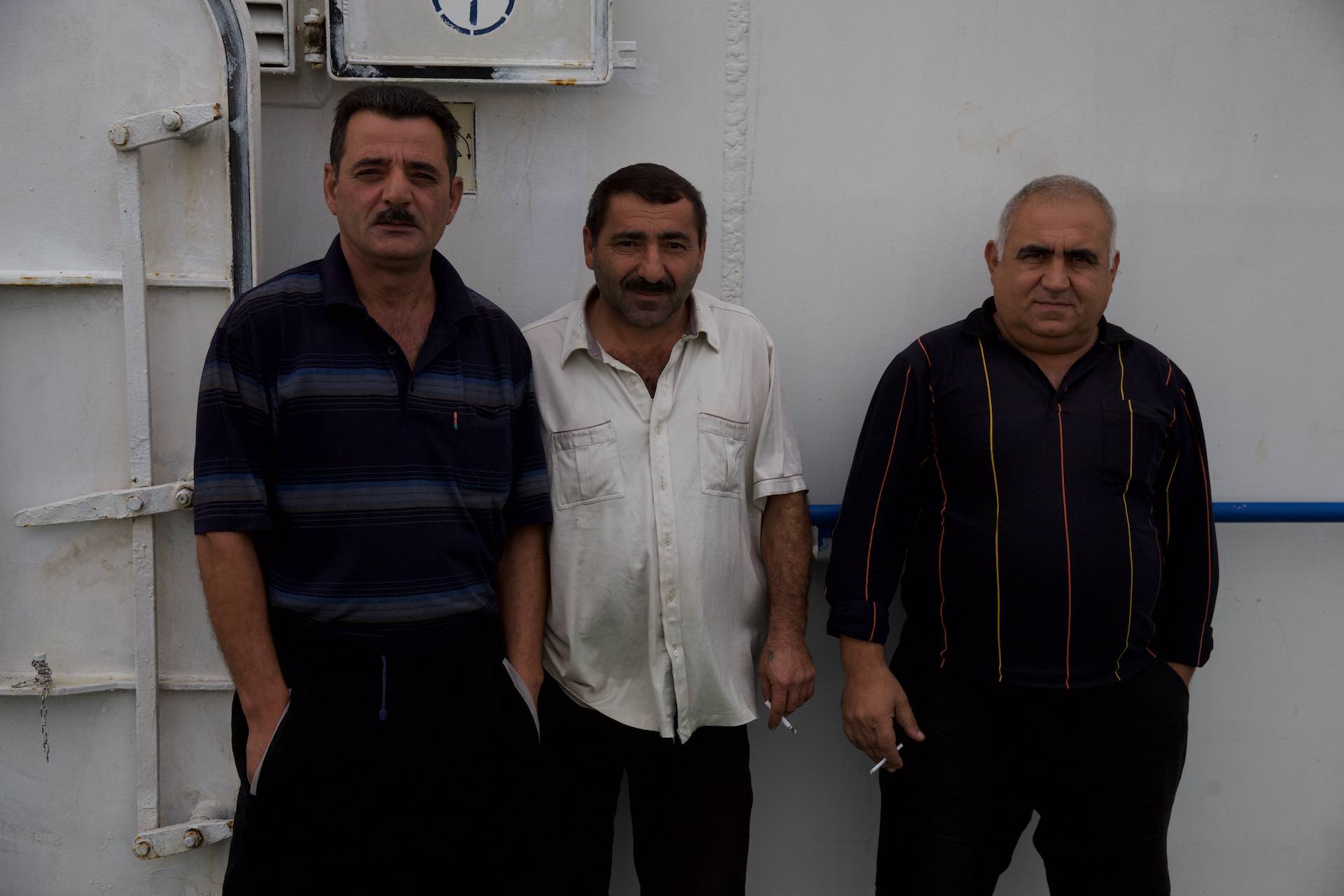Caspian Crossing
We cross the Caspian Sea from Baku (Azerbaijan) to Aktau (Kazakhstan) on a cargo vessel. Aboard we meet a group of four Azeris working on a refrigerated goods train. Their cargo is frozen meat from Paraguay and their job is to handle customs procedures and deliver the goods safely to northern Kazakhstan. The nitty-gritty of globalised trade.
We spend a day anchored off the Kazakh coast. Two other ships are waiting to discharge and the sailors say a storm is coming. Much time and nothing to do except watching the weather and hoping that we are allowed to dock before the winds pick up.
The Azeris invite us to their cabin and feed us fresh pomegranates, snacks, and vodka. “Isn’t there enough meat in Kazakhstan?”, I ask. There is plenty, “but they eat a lot”, they reply. And the growing middle class in the oil-rich country has developed a taste for fine steaks and tenderloin, they add.
The four men are in their 50s and led different lives before becoming train attendants. One was running his own shop in Moscow, which paid for his two children’s university eduction. It was raided and seized, like so many other immigrant businesses. The other one was the director of a fish factory and responsible for the protection of fish in the Caspian Sea during Soviet times. Now they earn about 240 USD a month. Not enough for anything in expensive Azerbaijan. Soviet times were better, fairer, more affluent, they all agree.
Privacy Policy
Plain and simple: I take the principle of minimal data collection serious and try hard not to collect or process any personal data beyond the basics required to serve and maintain the website.
Specifically,
- We do not use cookies.
- We do not use third party analytics.
- There is no contact form that would allow you to enter personal data.
- We do not use advertising to run this website.
In order to serve this website, your IP address and information about your browser, operating system and screen resolution need to be collected and processed. theotherimage.com is a simple, handcrafted, static website hosted by Netlify. It uses fonts by Adobe Fonts (formerly Typekit). Both Netlify and Adobe automatically collect usage data, either generated by the use of this website or from the service infrastructure itself. This data is used for accounting and analytic purposes as well as for technical maintenance by these two companies. Neither Netlify nor Adobe use cookies to track you. Specifics can be found in their respective privacy policies.
The videos on this website are hosted by Vimeo. Depending on your browser configuration, Vimeo may use cookies and other tracking technologies as stated in their respective privacy policies.
If you have any questions about this privacy policy, please write to: Martin Saxer, LMU Munich, Department of Social and Cultural Anthropology, Oettingenstr. 67, 80538 Munich, Germany.
This privacy policy has been updated on 30 December 2018.
![[ the other image ]](/images/logo/toi-logo_2x.png)







